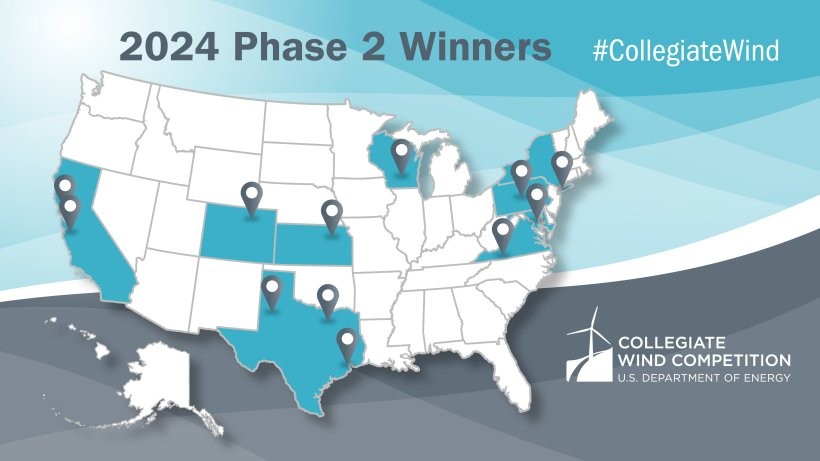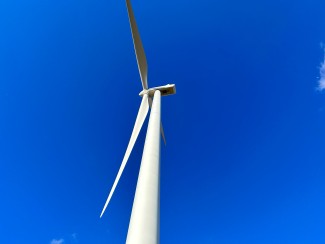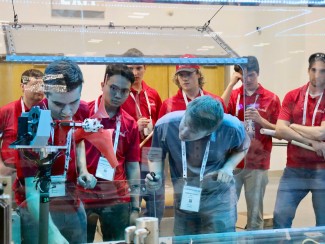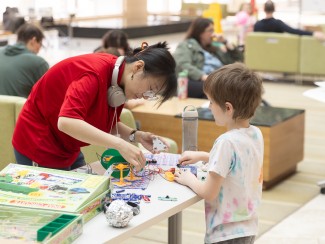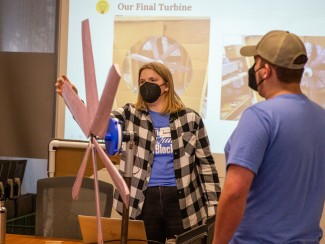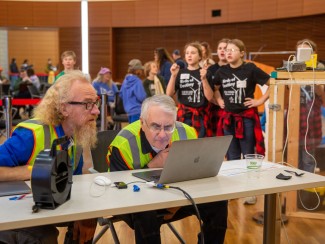The competition challenges undergraduate teams from across the country to develop a wind energy project and design, build, and test a model turbine.
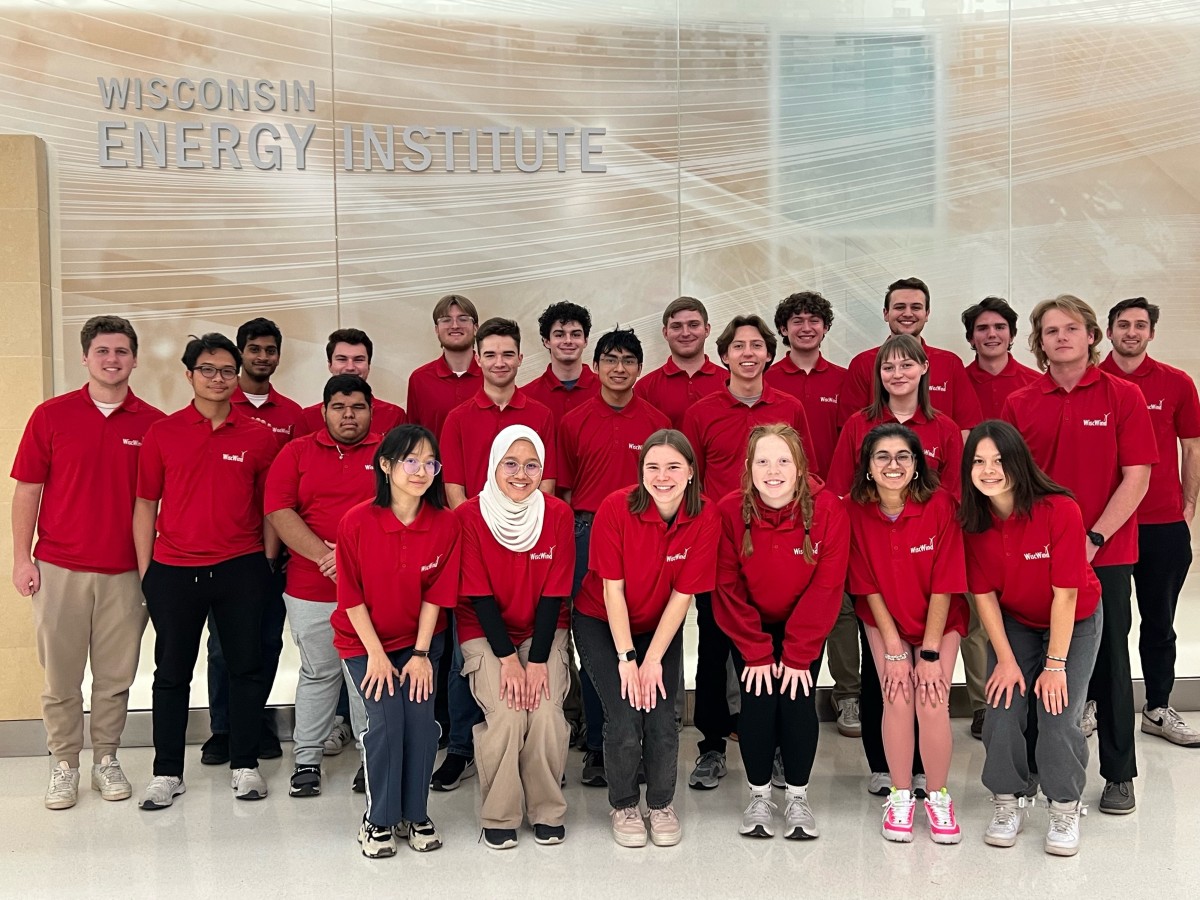
A group of students from the University of Wisconsin–Madison will compete in the nation’s most prominent undergraduate wind energy competition for the ninth consecutive year.
UW–Madison’s team, known as WiscWind, is one of 12 selected for the third round of the U.S. Department of Energy’s 2024 Collegiate Wind Competition, which aims to prepare college students for jobs in the wind energy workforce through hands-on experience. Participating students regularly receive job offers and go on to work in renewable energy companies, said WiscWind team lead and mechanical engineering junior Josh Delgado.
The competition challenges undergraduate teams to develop a site plan and financial analysis for a wind energy project; design, build, and test a model wind turbine; and conduct outreach with local communities. Participating teams apply classroom learning to a real-world problem and connect with industry leaders while preparing to enter the wind energy workforce.
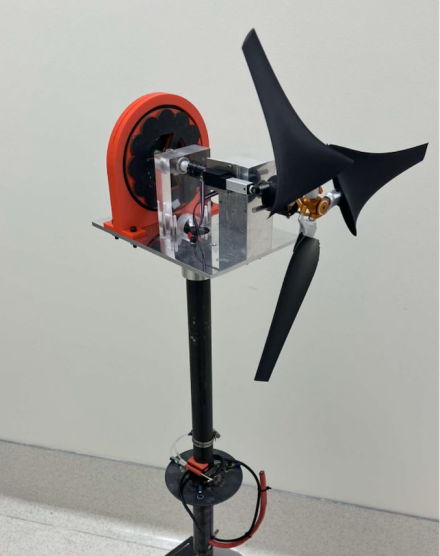
This year's prompt challenges each student team to create a wind turbine designed for viability in offshore environments. According to Delgado, the turbine's sub structure must fit into sand and water and withstand winds up to 50 miles an hour.
WiscWind's mechanical, electrical, project development, and outreach subteams will present their design, small-scale prototype, project development plan, and outreach activities in May to a panel of expert judges at the final event in Minneapolis.
The finalists were selected from a field of 32 teams based on evaluation of their preliminary design report for a prototype wind turbine, preliminary design report for a hypothetical offshore wind farm site, community education and outreach plan, and a report on the relationships established with members of the wind industry.
Delgado firmly believes that WiscWind's experience will propel the team to new heights this year.
"It seems like over the course of the year you make about every mistake you possibly can in the book, but every year you learn from those and you continue on," Delgado said. "And this year, we avoided a lot of mistakes we made last year, so every year you just kind of keep progressing. But that experience that you have is vital."
Resiliency is a key component of the experience, and so is on-the-spot problem solving.
At last year's competition, the team encountered a last-minute problem with the turbine's generator. The shaft had worn down to the point where its rare earth magnets collided together. In an exercise of sheer resourcefulness, the team used a car jack and the railing of a staircase to separate the magnets and were able to continue on with the competition.
During Phase 3 of the competition, teams complete the prototype reports and site designs, build and test their turbine prototypes, and continue to build connections with the wind energy industry and their communities.
"This year, we're in a really great spot, a great stepping stone from last year," Delgado said. "I think that's the goal on everyone's minds, just to win it all."
The team is also involved with the university’s Wisconsin KidWind Challenge, in which teams of middle- and high-school students from across the state participate in a hands-on wind turbine design competition. This year’s competition will take place on Saturday, March 2 at the Discovery Building at the UW–Madison campus.
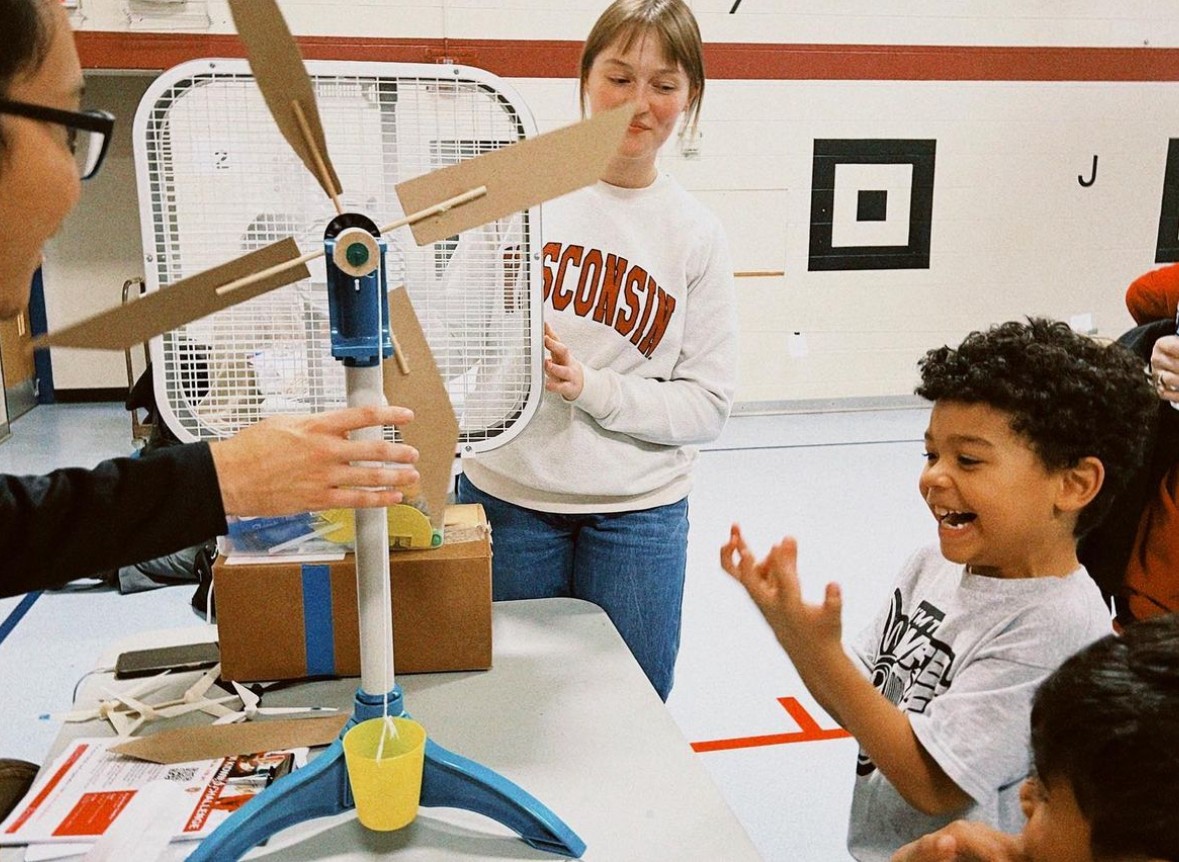
In addition to UW–Madison, the teams invited to the third round of the 2024 CWC are:
- California Polytechnic University
- California Maritime Academy
- City College of New York
- Johns Hopkins University
- Kansas State University
- Pennsylvania State University
- Rice University
- Texas Tech with South Plains Community
- University of Colorado Boulder
- University of Texas at Dallas
- Virginia Tech with James Madison
Read the Department of Energy announcement of the Phase 3 participants.
